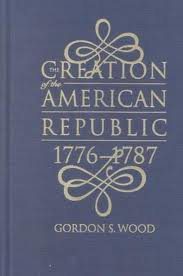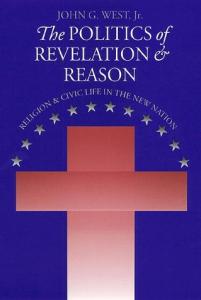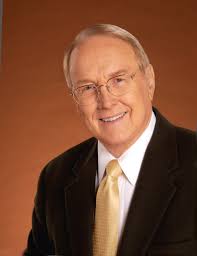They say confession is good for the soul, so I am going to confess that as a “never Trumper” I’m getting pretty worked up about the 2024 presidential election, and I need to use this post to process some of my thoughts. In addition to Trump’s continual non-presidential sounding rhetoric and attitude, trial delaying tactics, and just plain craziness, there is a spate of recent and forthcoming articles issuing dire warnings about a second Trump term. My problem is that I am inclined to believe them.
This past week The Atlantic announced that 24 of its writers will be publishing articles in the next few weeks predicting a long list of undesirable things likely to transpire in a second Trump term. Also in the last couple of weeks, Robert Kagan (son of the renowned Yale professor Donald Kagan whose textbook many of us used in college) published two Washington Post opinion pieces explaining Trump’s easy path to becoming an autocrat, and suggesting some ways Republicans can try to thwart that, although he doesn’t expect that to occur. (See here and here.) I hope he is wrong.
Then there is the steady stream of revelations from former advisers and members of his first administration in “tell all” books (and here) and in their testimonies supporting the various felony indictments against Trump. In addition to these revelations, there is the 2017 NY Times bestseller The Dangerous Case of Donald Trump written by 37 mental health professionals warning that Trump is psychologically unfit for the presidency.
It is truly unprecedented for so many scholars, journalists, and advisors to warn voters that a leading presidential candidate poses an existential threat to this nation’s democratic institutions and traditions. But despite these warnings, with just a few weeks to go before the Iowa caucuses, polling data continue to show that Trump remains light years ahead of his next closest competitors among Republican primary voters and evangelical voters.
In light of these extensive and carefully reasoned arguments and first-hand testimonies, I’m saddened that so many white evangelicals and Republican primary voters remain oblivious to the real risks of a second Trump administration. I think there are fundamental structural issues that prevent them from seeing the dangers that go beyond the fact that they are obviously not reading the Washington Post or The Atlantic, and I will offer my list of reasons.
As a historian of nineteenth-century America, I’m tempted to resort to the scholarship about republican thought in America between the mid-1700s and the mid-1800s. Although this scholarship is now considered “old” (mostly written from the1960s to the 1980s) there is a certain attraction for me in revolutionary and antebellum era republican ideology.
In the early years of our republic there were both secular and Christian forms of republican thought, but they both maintained that republics needed a virtuous citizenry in order to survive and thrive. Secular republican thought about the longevity of republics was much more cynical than Christian republicanism. These leaders believed that history taught that all republics go through the stages of birth, maturation, and inevitable decline into some kind of demagoguery based on the existence and decline of its citizens’ public virtue. The only question was how long would it take for decline to set in? Alternatively, many Christians of that era believed that their evangelistic fervor and social reform efforts could indefinitely stave off the decline of the American experiment.
Secular leaders, such as Thomas Jefferson, defined virtue in its classic sense as when “independent” citizens prioritized the public good over their private interests. If Jefferson could see us now, a long list of societal changes would undoubtedly deeply disturb him, and I’m convinced that that list would include the self-evident dearth of public virtue among our elected officials, never mind our citizenry. Jefferson would likely see America as primed to succumb to the rule of a demagogue or autocrat, and perhaps even be surprised that one had not already arisen. Merriam Webster’s dictionary defines demagogue as “a leader who makes use of popular prejudices and false claims and promises in order to gain power.” If this doesn’t describe Donald Trump, then nothing does. I also like the way Kagan describes Trump’s influence: “Trump’s power comes from his following, not from the institutions of American government.” The extent to which this statement is true, is the extent to which we should all be deeply concerned.
Call me old fashioned, but I’m inclined to believe that even though virtue is no longer part of our popular national citizenship talking points, it is nonetheless still, objectively speaking, a cultural value that is necessary for a people to successfully rule themselves. There are multiple definitions of virtue, but regardless of the definition, just like our “founding fathers” and “founding mothers,” I still believe that self-government can only be successful with virtuous citizens.
But I also have other suppositions about why Trump retains a cult following among evangelical and Republican voters despite his lack of personal integrity, coarse and offensive language, vindictive spirit, childish rants, and his active planning to undermine, if not revoke, numerous government traditions, treaties, and laws going back to the 1800s. (See here, here, and here.)
For starters, evangelicals no longer believe what James Dobson said in 1998 when speaking about Bill Clinton’s affair with Monica Lewinsky. In fact, Dobson’s support for Donald Trump in 2016 demonstrates that even he himself doesn’t believe this any longer.
As it turns out, character DOES matter. You can’t run a family, let alone a country, without it. How foolish to believe that a person who lacks honesty and moral integrity is qualified to lead a nation and the world! Nevertheless, our people continue to say that the President is doing a good job even if they don’t respect him personally. Those two positions are fundamentally incompatible. In the Book of James the question is posed, “Can both fresh water and salt water flow from the same spring” (James 3:11 NIV). The answer is no.”
I think that if Dobson’s view was right in 1998 (and it was) then it is right in 2023. This isn’t the kind of thing that changes with the political winds.
James Dobson
Another reason is because white evangelicals have so passionately embraced the very identity politics and victimhood mentality that they loathe to see racial and other marginalized groups claim. Trump knows this better than they do themselves, and he’s expert at channeling those sentiments. Truth is, people who do not see themselves as somehow victimized or aggrieved have little reason to vote for Trump.
Identity politics comes into play in yet another way. Many conservatives are unable to hear truth spoken by people who are not conservatives. To their own intellectual loss, they downplay or dismiss a message based on the identity of the messenger, rather than the merits of the message. Of course this is also a problem for most progressives, and explains why the term echo chamber was created to describe Americans’ current communication proclivities.
Then there is good old-fashioned fear. Evangelical voters are much more motivated by fear of all things Democratic than they are willing to admit. Their fear combines with the absence of a comprehensive biblical framework for civic participation in a pluralistic society, thereby leaving them highly susceptible to manipulation by those most adept at communicating through our media ecosystem.
Oh yes, our media ecosystem. Regardless of one’s educational level, most Americans find our current information ecosystem overwhelming and exhausting. Between TikTok, YouTube, X (formerly called Twitter), Instagram, Facebook, and podcasts — and oh yes, cable and network news, newspapers, and magazines – there is just way too much highly curated information for most people to find enough accurate information on which to base their civic involvement, including their voting. Most people lack the time, the intellectual skill set, or the mental or emotional stamina to sift through the blizzard of information, misinformation, and disinformation coming at them daily. It’s truly a frightful situation for citizens needing good information to rule themselves.
This information vacuum — or worse, confusion—means more and more voters are either susceptible to Trump’s overly simplistic rhetoric or are completely oblivious about many issues. (I think Democrats on average try to embrace a little more complexity and nuance in their public policy decisions than Republicans, who only have had only one policy since Ronald Reagan: “reduce the federal government.”) For example, do most voters really understand the ramifications of Trump’s anti-NATO stance? Do most voters really understand how China used Trump’s failure to appoint ambassadors during his first term to increase its influence throughout the global south? Do most voters understand the ramifications of Russia defeating the Ukraine? These issues remind me of Britain’s 2016 Brexit vote when 51.9% voted to leave the EU, but as of November 30th this year, only 33% still think it was the right decision. I suspect the ramifications of the vote were likely too complex for the average voter to fully comprehend.
Finally, as long as the Democrats nominate Joe Biden, many Republicans who are relatively uninspired Trump voters will not be drawn away. Biden tragically failed to pick a capable VP to whom he could pass his mantle after four year. That was a great disappointment to me.
Our national political institutions are desperately in need of a re-design. They obviously do not produce good nominees any more. With both Republicans and Democrats each respectively representing just 28% of Americans, that means something like half or less of each party will nominate the candidates that all of us will vote on next November. No wonder the rest of us constantly complain about the choices we have in the general election. Hopefully Republican primary voters will nominate someone else, and hopefully Biden will step down at the last minute. We need some truly viable nominees.
These percentages suggest to me that one appropriate response to Trump’s efforts to undermine our governmental institutions is for more of us to become active –or more active– in our American experiment in self-government. The least that each of us can do is find a way to participate in our self-government experiment in 2024 in a new way. If you haven’t voted before, make sure you get registered and you vote, in at least one election next year. Maybe you normally only vote in the general election. Next year vote in the primary. maybe you have never donated to a candidate, or volunteered for one. Next year is a good time to try it. There are many local and state officials running for office in addition to the president. For me, I have signed up to work the polls for the first time in my life. I am excited to be a non-partisan part of ensuring a free and fair election process. Election deniers have been abusing poll workers something terrible in recent years, resulting in many resignations, and I certainly don’t want a manpower shortage in my county. As long as I can, I want to do my part to support this great American experiment in self-rule. After all, as Benjamin Franklin told one lady, we have a republic, but only “if we can keep it.”

















